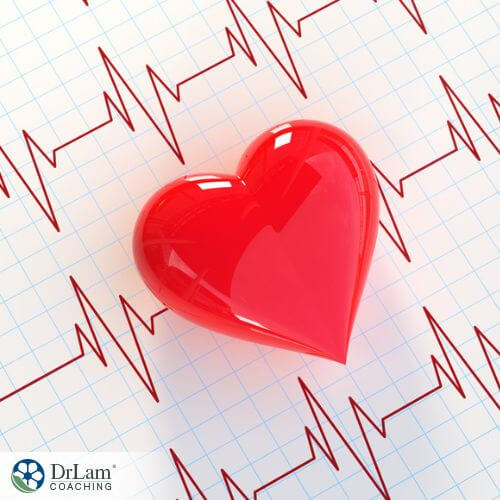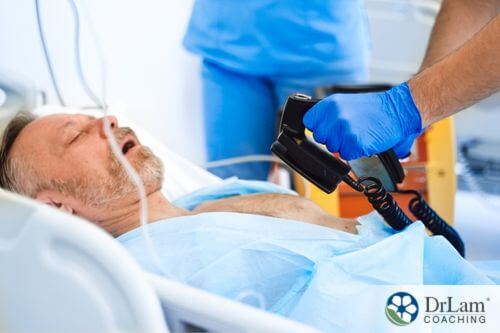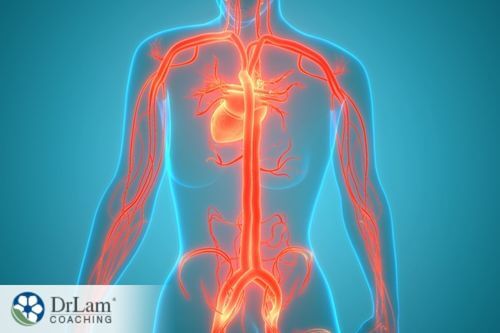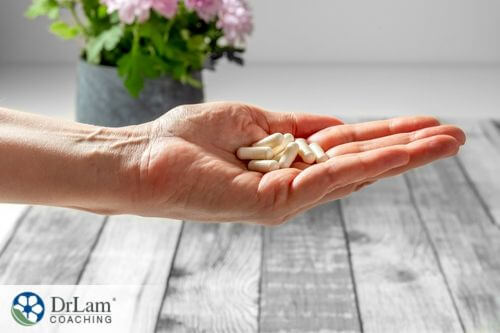 Arrhythmia is a term that refers to an irregular heartbeat. It could be faster or slower than normal or have an atypical beat. A normal heartbeat has a steady rhythm and beats anywhere between sixty and one hundred times a minute. If you have an irregular heartbeat, your healthcare provider may suggest the use of arrhythmia supplements.
Arrhythmia is a term that refers to an irregular heartbeat. It could be faster or slower than normal or have an atypical beat. A normal heartbeat has a steady rhythm and beats anywhere between sixty and one hundred times a minute. If you have an irregular heartbeat, your healthcare provider may suggest the use of arrhythmia supplements.
A fast beating heart is referred to as tachycardia, a slow beating heart as bradycardia, and one with an irregular rhythm as atrial fibrillation. Depending on specifics, one type of arrhythmia may be more harmful than another. The type of arrhythmia determines which types of arrhythmia supplements may work best for you.
An arrhythmia is the result of an electrical conduction disruption in your cardiac tissue. Electrical conduction in your heart makes your heart beat. To beat correctly, your electrical conduction system needs to work properly. People with an underlying heart condition often develop arrhythmias, although you can have an abnormal heart rate even when you have a healthy heart.
Arrhythmia classification depends on the area of the heart affected. This could be in the two upper chambers or atria, or the lower two chambers called ventricles.
Certain arrhythmias, such as ventricular fibrillation, are life-threatening because they can affect your heart’s ability to pump blood. This means they may cause a cardiac arrest. In 2020, one in every five deaths in the United States resulted from cardiac disease.
Certain arrhythmias can do more harm than others.
Also referred to as premature extra beats, this type of arrhythmia is commonly deemed the most harmless. When occurring in the atria, they are referred to as premature atrial contractions. This type of arrhythmia may result from the following:
When occurring in your ventricles, we refer to them as premature ventricular contractions. These may occur because of existing structural heart disease, or when there is no other heart condition.
This type of benign transient ventricular arrhythmia, commonly found in approximately 69% of elderly people over the age of seventy-five years, often feels as if your heart has an extra beat. It is not associated with a structural heart condition.
The most common causes of premature ventricular contractions include the following:
While this type of arrhythmia is usually considered harmless if there are no structural heart conditions, it may have a negative effect if you do. Symptoms resulting from this type of arrhythmia include heart palpitations, chest pain, and sometimes heart failure.
Frequent premature ventricular contractions could cause an enlarged heart. We refer to this as premature ventricular contractions-induced cardiomyopathy. Your heart may no longer pump your blood throughout your body as it should. The condition is only diagnosed after ruling out any other causes.
There are several types of supraventricular arrhythmias. They start in either the atria or atrioventricular nodes.
Atrial flutter is usually harmless and infrequent. It can, however, cause serious issues. These include blood clot formation that, if it travels to the brain may cause a heart attack or stroke. It may also cause a condition called cardiomyopathy. The condition causes a weakening of the heart muscles that could result in heart failure.
 Atrial fibrillation risk increases as you age. A common form of the condition, called post-operative fibrillation, occurs in up to forty percent of those who have undergone cardiac surgery.
Atrial fibrillation risk increases as you age. A common form of the condition, called post-operative fibrillation, occurs in up to forty percent of those who have undergone cardiac surgery.
In atrial fibrillation, your heart’s electric signals become compromised and start in the wrong area of the atria or near a pulmonary vein. Because these signals do not follow the normal path, they cause your atria to fibrillate abnormally. As a result, your blood flow becomes compromised.
Although not considered life-threatening in most people, this condition could result in heart failure or ischemic stroke. In the case of heart failure, it may result from the heart being unable to pump through the body as it should. An ischemic stroke, on the other hand, may result from blood not fully emptying from the atria. This could cause blood clots in the heart that, if they travel to the brain, could cause a stroke.
This condition involves an intermittent increase in your heart rate. Symptoms may both appear and disappear suddenly. It results from the transmission of electrical signals in reverse - from your ventricles to your atria. In so doing, extra heartbeats occur.
The condition may result from the use of certain medications or as a result of Wolff-Parkinson-White syndrome.
Wolff-Parkinson-White Syndrome happens when the heart’s electrical signals move along an additional pathway and disrupt your electrical signals. Ventricles may, therefore, beat more rapidly. This type of tachycardia, considered life-threatening, may occur either with or without accompanying symptoms.
Considered life-threatening, these arrhythmias are the most common cause of cardiac death. Someone experiencing this type of arrhythmia needs immediate emergency care. They occur in both people with a history of structural heart issues as well as in those without any history of cardiac conditions.
Disorganized electrical signals accompanied by ventricular fibrillation result in a heart unable to pump blood throughout the body. If not immediately dealt with, death may result.
Referring to a slower than normal heart rate, this type of arrhythmia may result in not enough blood reaching your brain. While a slower heart rate is normal in very physically fit people, it is not normal in the average person. It may result from the use of certain medications, electrolyte imbalances, hypothyroidism, or a medical condition like a heart attack.
Ventricular tachycardia refers to an exceedingly fast yet regular heart rate. Mild episodes may do no harm, but if it continues, they may become dangerous as they could evolve into the more dangerous ventricular fibrillation.
Stress can result in a disruption of the Cardionomic Circuit, affecting heart arrhythmias.
Your body’s response to stress activates your NeuroEndoMetabolic (NEM) stress response, which is governed by the Hypothalamic-Pituitary-Adrenal (HPA) axis. The result of this NEM activation, an increase in stress hormone production, is accompanied by physiological changes throughout your body. These changes result from an increased cortisol output from your adrenal glands. They include an accelerated heartbeat, changes in hormone production, and many others. But all functions should return to normal once stress passes.
Continued stress, however, can severely impact Cardionomic Circuit function. It can also cause a host of seemingly unrelated symptoms and lead to adrenal fatigue.
 Your Cardionomic Circuit, one of the six circuits of organ systems forming the NEM, consists of the cardiovascular system, autonomic nervous system, and adrenal glands. Your cardiovascular system and autonomic nervous system go into overdrive when stress presents itself. When stress continues for a long period, however, they are not able to keep up this level of work, especially when cortisol output declines due to overtaxed adrenal glands.
Your Cardionomic Circuit, one of the six circuits of organ systems forming the NEM, consists of the cardiovascular system, autonomic nervous system, and adrenal glands. Your cardiovascular system and autonomic nervous system go into overdrive when stress presents itself. When stress continues for a long period, however, they are not able to keep up this level of work, especially when cortisol output declines due to overtaxed adrenal glands.
Prolonged or increased stress could result in all three systems becoming overworked. This could cause a Cardionomic Circuit dysregulation with serious consequences. You may see various symptoms that point to this, including:
As this state of dysregulation progresses, the type and severity of symptoms may increase. These may result from damage to your cardiac nodes. Cardiac nodes play an important function in heartbeat regulation. Amongst the symptoms are included:
These symptoms indicate a major disruption to your Cardionomic Circuit. And while these symptoms may only appear gradually and be mild, they could increase in intensity and severity as time passes. The various symptoms include:
Further progression could result in:
The autonomic nervous system also plays a key role in Cardionomic Circuit functions such as controlling your heart rate.
When stress sets in, the cortisol influx may cause the autonomic nervous system to increase your heart rate. Together with the changes imposed on this system during stress, you could see damage done to the nerves of this system, causing dysautonomia. If stress continues, the condition can become irreversible. Symptoms that may emerge with this situation include:
Disruption of your autonomic nervous system may contribute to arrhythmias. This could lead to an autonomic nervous system overload that could cause serious damage to your heart. Arrhythmia supplements may help calm your autonomic nervous system while providing adrenal support.
Those most at risk of needing to look into arrhythmia supplements are those with arrhythmia or who have a risk of developing the condition. Those most at risk of developing arrhythmias include:
Other risk factors include:
 Fortunately, there are things you can do to help manage arrhythmias. These include supplements and various lifestyle changes.
Fortunately, there are things you can do to help manage arrhythmias. These include supplements and various lifestyle changes.
Various herbs, vitamins, amino acids, and minerals make great arrhythmia supplements to help manage the condition. These arrhythmia supplements aim to have a calming effect. It's best to avoid anything that overstimulates your system because it could harm your adrenals and overall health. You should always talk to your doctor before trying a new supplement to avoid any paradoxical reactions or interactions with medication.
This herb has long been used in traditional Chinese medicine to address heart conditions. Literature suggests that taken as an oral supplement, ginger may significantly reduce your risk of arrhythmia.
Used to support heart issues since the 19th century, this herb, according to modern research, may help promote heart health by addressing some symptoms of arrhythmia. It could, for example, help reduce palpitations while encouraging a normal heart rhythm. Long-term supplementation may also reduce the incidence of ventricular fibrillation. Furthermore, hawthorn may promote vascular health due to its anti-inflammatory properties while promoting proper blood flow and oxygen use.
Rhodiola is one of the arrhythmia supplements that may reduce the frequency of ventricular arrhythmias. This may be due to its ability to activate opioid receptors. Literature also suggests the herb may improve heart cell health after an ischemic injury.
A polyphenol commonly found in grapes, resveratrol has strong antioxidant and anti-inflammatory properties. According to the literature, resveratrol may address your inflammatory response as well as oxidative stress after you have had a myocardial infarction. In so doing, it may reduce your risk of ventricular arrhythmias.
Your body needs magnesium to maintain its electrolyte balance. Low magnesium levels are common in those with heart conditions like hypertension, angina, and congestive heart failure. Furthermore, a magnesium supplement may help address certain types of ventricular tachyarrhythmia while improving symptoms of premature ventricular and supraventricular arrhythmias. It may also reduce your risk of postoperative atrial fibrillation if undergoing heart surgery.
Like magnesium, potassium also plays a role in electrolyte balance. Because of its importance in maintaining your heart’s electrical stability, low potassium levels may contribute to the incidence of arrhythmias.
Vitamin C is not only great at helping you get over the cold or flu. Literature suggests this vitamin is one of those arrhythmia supplements that, due to its antioxidant and anti-inflammatory properties, may help with arrhythmias as well. Literature suggests it may help reduce your chances of postoperative atrial fibrillation by more than 80 percent.
A powerful antioxidant, coenzyme Q 10 also plays a vital role in the production of energy at a cellular level and may help improve cardiac function after, for example, a heart attack. Literature suggests it is effective in exerting antiarrhythmic actions and may help promote proper blood flow to your heart when a cardiac incidence takes place. It may also reduce the risk of arrhythmias in those with type-2 diabetes while also reducing premature ventricular contractions risk.
Although widely available as a supplement, you can also find these fatty acids in certain fish and seafood like salmon, sardines, herring, and tuna. Two omega-3 fatty acids, eicosapentaenoic acid (EPA) and docosahexaenoic acid (DHA) both promote heart health due to their anti-inflammatory properties. They also have anti-arrhythmic properties that may benefit those with heart conditions. They lower blood pressure levels and improve lipid levels, both common contributors to heart disease. Furthermore, omega-3 fatty acids help normalize the function of the sodium and calcium channels in the cell membranes of the heart muscle. This helps stabilize the heart’s electrical activity and thus helps reduce your arrhythmia risk.
 One of the best management strategies is making appropriate lifestyle changes. This includes limiting your caffeine and alcohol intake, stopping smoking, getting enough exercise, reducing stress, and maintaining a healthy weight.
One of the best management strategies is making appropriate lifestyle changes. This includes limiting your caffeine and alcohol intake, stopping smoking, getting enough exercise, reducing stress, and maintaining a healthy weight.
You cannot, however, expect to run a marathon after being a couch potato for a few years. Overly intense exercise regimens may also harm your heart health. You should aim for exercise that works up a slight sweat while raising your heart rate slightly. Good choices include Pilates, tai chi, yoga, brisk walks, cycling, and swimming.
Your diet also plays a significant role in your cardiovascular health. You should work at cutting out sugary and processed foods. Rather, concentrate on a diet rich in a variety of organic vegetables and low-fat protein. Lean beef, poultry, and fish are good options. The adrenal fatigue diet is a good option that also helps address the effects of stress on the body.
If you decide to utilize arrhythmia supplements as part of your strategy to address the issue, be sure to do so with the help of a professional healthcare provider. Many supplements have contraindications, especially when you have other underlying conditions or use certain medications. Your healthcare provider is best able to determine their efficacy and dosage.
If you would need assistance choosing an arrhythmia supplement or other ways to support your heart health, the team at Dr. Lam Coaching can help. We offer a free** no-obligation phone consultation at +1 (626) 571-1234 where we will privately discuss any issues or concerns you may have. You can also send us a question through our Ask The Doctor system by clicking here.
Some arrhythmia supplements can promote adrenal health. Many of the best supplements for arrhythmia support overall health as well, such as antioxidants, adaptogens, and certain vitamins and minerals. Supporting your overall health and lowering stress is one of the best ways to manage adrenal fatigue and arrhythmia.
